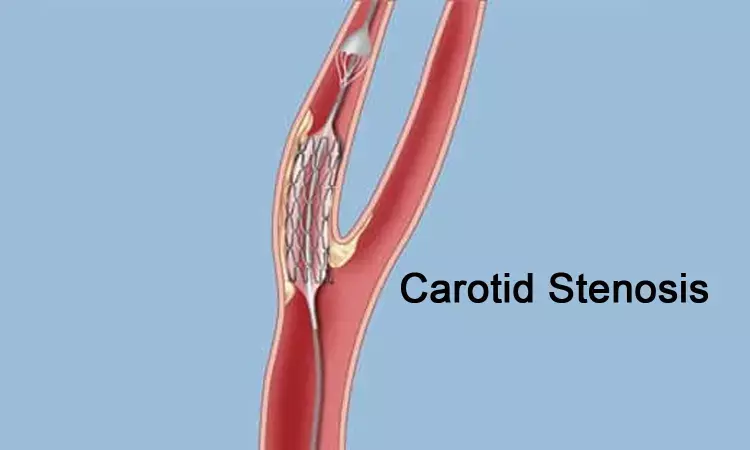- Home
- Medical news & Guidelines
- Anesthesiology
- Cardiology and CTVS
- Critical Care
- Dentistry
- Dermatology
- Diabetes and Endocrinology
- ENT
- Gastroenterology
- Medicine
- Nephrology
- Neurology
- Obstretics-Gynaecology
- Oncology
- Ophthalmology
- Orthopaedics
- Pediatrics-Neonatology
- Psychiatry
- Pulmonology
- Radiology
- Surgery
- Urology
- Laboratory Medicine
- Diet
- Nursing
- Paramedical
- Physiotherapy
- Health news
- Fact Check
- Bone Health Fact Check
- Brain Health Fact Check
- Cancer Related Fact Check
- Child Care Fact Check
- Dental and oral health fact check
- Diabetes and metabolic health fact check
- Diet and Nutrition Fact Check
- Eye and ENT Care Fact Check
- Fitness fact check
- Gut health fact check
- Heart health fact check
- Kidney health fact check
- Medical education fact check
- Men's health fact check
- Respiratory fact check
- Skin and hair care fact check
- Vaccine and Immunization fact check
- Women's health fact check
- AYUSH
- State News
- Andaman and Nicobar Islands
- Andhra Pradesh
- Arunachal Pradesh
- Assam
- Bihar
- Chandigarh
- Chattisgarh
- Dadra and Nagar Haveli
- Daman and Diu
- Delhi
- Goa
- Gujarat
- Haryana
- Himachal Pradesh
- Jammu & Kashmir
- Jharkhand
- Karnataka
- Kerala
- Ladakh
- Lakshadweep
- Madhya Pradesh
- Maharashtra
- Manipur
- Meghalaya
- Mizoram
- Nagaland
- Odisha
- Puducherry
- Punjab
- Rajasthan
- Sikkim
- Tamil Nadu
- Telangana
- Tripura
- Uttar Pradesh
- Uttrakhand
- West Bengal
- Medical Education
- Industry
Cilostazol may Reduce Risk of Restenosis After Carotid Stenting, suggests research

Recent research has proven that supplementing antiplatelet therapy with cilostazol minimizes in-stent restenosis (ISR) in carotid artery stenting (CAS) patients, primarily in the chronic period post-procedure. A recent study was conducted by Hiroshi Y. and colleagues published in the journal Stroke.
Carotid artery stenosis, a narrowing of the carotid arteries, usually requires intervention through CAS to prevent ischemic strokes. However, ISR characterized by the re-narrowing of the artery was a significant challenge post-procedure. Cilostazol, being a phosphodiesterase III inhibitor with antiplatelet and vasodilatory effects, has had a potential benefit in previous studies in reducing ISR. The purpose of this randomized, open-label, blind-endpoint trial was to find the efficacy of cilostazol when added to standard antiplatelet therapy.
The study was from December 2010 and September 2015 when 631 patients were involved (mean age 69.9 years, with 88.4% men) of an originally planned sample size of 900. Patients with symptomatic or asymptomatic carotid artery stenosis who underwent CAS were randomly assigned into two groups:
• Cilostazol group : Patients received cilostazol (50 or 100 mg, twice daily), in addition to other antiplatelet drugs, started 3 days before CAS.
• Non-cilostazol group: Treated with antiplatelet therapy without cilostazol.
ISR was diagnosed with duplex ultrasonography, which is a peak systolic velocity of at least 1.75 m/s. The primary outcome was the incidence of ISR within 2 years post-CAS. Secondary outcomes included cardiovascular events, mortality, and hemorrhagic events.
Reduction in ISR with Cilostazol
Key findings
• ISR developed in 31 of 325 patients (10.8%) in the cilostazol group compared with 46 of 306 patients (19.6%) in the non-cilostazol group.
• Hazard ratio for ISR with cilostazol was 0.64 (95% CI, 0.41–1.0; P=0.056).
• In an exploratory analysis, ISR was significantly less frequent after 30 days in the cilostazol group (10.3% vs. 19.3%, P=0.040).
Cardiovascular and Hemorrhagic Events:
• Incidence of cardiovascular events or death was comparable: 6.2% in the cilostazol group and 6.7% in the non-cilostazol group.
• Hemorrhagic events were observed in 2.3% of the cilostazol group and 1.4% of the non-cilostazol group.
The addition of cilostazol to antiplatelet therapy was associated with a reduction in ISR in patients who underwent CAS, particularly beyond 30 days after the procedure. Although cardiovascular and hemorrhagic event rates were similar between groups, the study provides evidence supporting the potential role of cilostazol in improving outcomes for CAS patients.
Reference:
Yamagami, H., Ozaki, T., Ogasawara, K., Nagata, I., Matsumaru, Y., Yoshimura, S., Sasaki, M., Nagatsuka, K., Minematsu, K., Nagai, Y., Sakai, C., Matsumoto, Y., Ezura, M., Ishihara, H., Sakai, N., & for the CAS-CARE Investigators. (2024). Randomized controlled trial of cilostazol addition for in-Stent restenosis after carotid artery stenting. Stroke; a Journal of Cerebral Circulation, 55(12), 2776–2785. https://doi.org/10.1161/strokeaha.124.047210
Dr Riya Dave has completed dentistry from Gujarat University in 2022. She is a dentist and accomplished medical and scientific writer known for her commitment to bridging the gap between clinical expertise and accessible healthcare information. She has been actively involved in writing blogs related to health and wellness.
Dr Kamal Kant Kohli-MBBS, DTCD- a chest specialist with more than 30 years of practice and a flair for writing clinical articles, Dr Kamal Kant Kohli joined Medical Dialogues as a Chief Editor of Medical News. Besides writing articles, as an editor, he proofreads and verifies all the medical content published on Medical Dialogues including those coming from journals, studies,medical conferences,guidelines etc. Email: drkohli@medicaldialogues.in. Contact no. 011-43720751


